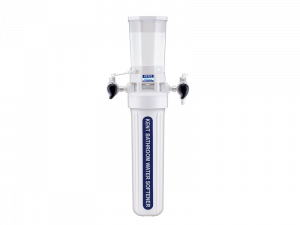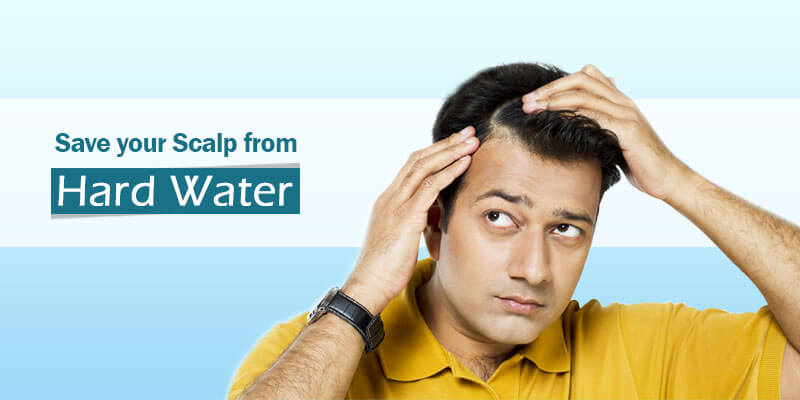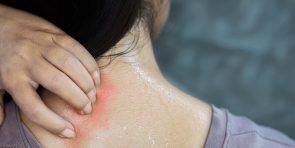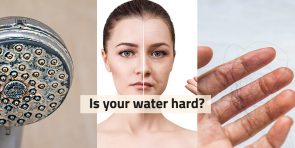Dry Scalp During Winter? You May have Hard Water at Home
Winter is the favorite season for a lot of people who are tired of the hot and humid weather. However, as the mercury dips, your hair and scalp need to constantly adjust to the varying temperatures inside your home and the cold weather outside. The result is a dry, itchy scalp with frizzy hair. But the weather is not the only factor that you need to blame when it comes to hair problems. Hard water has an equally damaging effect on your scalp. If you too struggle with the dry and itchy scalp in winter, we are here to help you out. The blog provides some remedies to keep your hair healthy and beautiful even if it’s freezing.
What is a Dry Scalp?
Dry scalp is a condition that is more prevalent during winter. You can often find dry, white flakes on your scalp caused by heat or poor diet. In addition to the varying temperature, hard water adds to the damage, thereby leading to dandruff and hair fall. A dry scalp makes your hair look lifeless, frizzy, and dull, leading to breakage and fallout.
How Hard Water Causes Dry Scalp?
Hard water has an excessive amount of calcium and magnesium. These hard minerals leave a thin film on the surface of the scalp and skin, which mixes with your shampoo and conditioners. As a result, the hair care products that you use don’t work well on hair and scalp. Instead of removing the dirt and bacteria accumulated on your scalp, the excess calcium and magnesium leave a film of scum. Many researchers have found that washing your hair even for 10 minutes with hard water has a direct impact on your hair.
If you have colored hair, you have a higher chance of hair damage. Your colored strands may look dull as hard water strips the color and shine from your hair. In fact, hair discoloration is one of the main signs that you receive hard water at home.
How to Deal with Hard Water and Dry Scalp in Winter?
If you have tried everything and nothing has worked in improving your hair quality, it’s time for a water quality test. The following tips will help you deal with hard water and its effect on your scalp.
Install a Water Softener

The first important step to saving your hair and scalp from hard water damage is to install a water softener. KENT has a range of electricity-free and chemical-free water softener that makes hard water soft automatically. The water softener uses an ion-exchange process to exchange the ions of calcium and magnesium with sodium. Depending on your budget, convenience, and needs, you can use a point-of-use or whole-house water softener.
Stay Hydrated
Proper hydration is another effective way to keep your scalp and hair healthy during winter. Hair and scalp are more affected during winter as most of us tend to drink less water as compared to summer. Make sure you drink enough water throughout the day to avoid the dry scalp and frizzy and dull hair.
Use Bottled or Filtered Water
Another easy way to protect your hair and scalp from hard water is by rinsing your hair with bottled or filtered water. However, using bottled water to wash your hair can be expensive. A cost-effective option is to use RO water. RO purified water is free of all types of contaminants, thereby saving your hair and scalp from damage.
Last Few Words
A lot of people complain about hair and skin problems without knowing the actual reason. Now that you know the reason for your everlasting hair and scalp problems, it’s time to test the water quality and install a water softener accordingly. KENT, which provides an incredible range of water softeners, can also do a free water test for you.
Frequently Asked Questions
1. How do you get rid of dandruff from hard water?
To combat dandruff caused by hard water, try these steps: Use a clarifying shampoo regularly to remove mineral buildup. Opt for a dandruff shampoo containing ingredients like zinc pyrithione or ketoconazole. Rinse your hair with distilled or filtered water to minimize the effects of hard water. Keep your scalp moisturized with conditioner or natural oils. Avoid excessive heat styling and maintain a healthy diet to support scalp health.
2. Which water is good for dandruff?
When it comes to dandruff, using soft water is often considered beneficial. Soft water has a lower mineral content, which can help reduce scalp irritation and dandruff. If you have hard water, considering a water softening system or using filtered or distilled water for hair rinsing can be helpful. Additionally, incorporating anti-dandruff shampoos and maintaining good scalp hygiene can contribute to managing dandruff effectively.
3. How do you fix dry scalp from hard water?
To alleviate dry scalp caused by hard water, try these steps: Use a moisturizing shampoo and conditioner formulated for dry scalp. Reduce the frequency of hair washing. Rinse your hair with distilled or filtered water. Apply a scalp moisturizer or natural oils like coconut oil. Avoid excessive heat styling and protect your scalp from harsh weather conditions.





